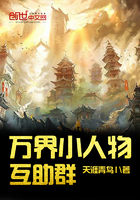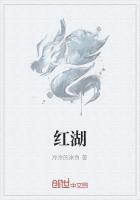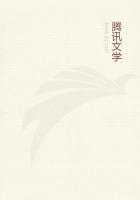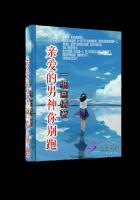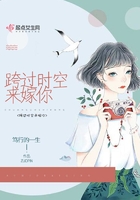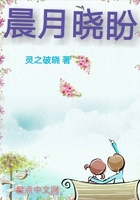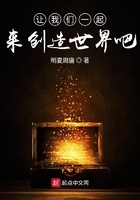I cling to this living raft, my body, in the narrow stream of my earthly years.
I leave it when the crossing is over. And then?
I do not know if the light there and the darkness are the same.
The Unknown is the perpetual freedom:
He is pitiless in his love.
He crushes the shell for the pearl, dumb in the prison of the dark.
You muse and weep for the days that are done, poor heart!
Be glad that days are to come!
The hour strikes, O pilgrim!
It is time for you to take the parting of the ways!
His face will be unveiled once again and you shall meet.
Over the relic of Lord Buddha King Bimbisar built a shrine, a salutation in white marble.
There in the evening would come all the brides and daughters of the King’s house to offer flowers and light lamps.
When the son became king in his time he washed his father’s creed away with blood, and lit sacrificial fires with its sacred books.
The autumn day was dying. The evening hour of worship was near.
Shrimati, the queen’s maid, devoted to Lord Buddha, having bathed in holy water, and decked the golden tray with lamps and fresh white blossoms, silently raised her dark eyes to the queen’s face.
The queen shuddered in fear and said, “Do you not know, foolish girl, that death is the penalty for whoever brings worship to Buddha’s shrine?Such is the king’s will.”
Shrimati bowed to the queen, and turning away from her door came and stood before Amita, the newly wed bride of the king’s son.
A mirror of burnished gold on her lap, the newly wed bride was braiding her dark long tresses and painting the red spot of good luck at the parting of her hair.
Her hands trembled when she saw the young maid, and she cried,“What fearful peril would you bring me! Leave me this instant.”
Princess Shukla sat at the window reading her book of romance by the light of the setting sun.
She started when she saw at her door the maid with the sacred offerings.
Her book fell down from her lap, and she whispered in Shrimati’s ears, “Rush not to death, daring woman!”
Shrimati walked from door to door. She raised her head and cried, “O women of the king’s house, hasten!The time for our Lord’s worship is come!”
Some shut their doors in her face and some reviled her.
The last gleam of daylight faded from the bronze dome of the palace tower.
Deep shadows settled in street corners: the bustle of the city was hushed: the gong at the temple of Shiva announced the time of the evening prayer.
In the dark of the autumn evening, deep as a limpid lake, stars throbbed with light, when the guards of the palace garden were startled to see through the trees a row of lamps burning at the shrine of Buddha.
They ran with their swords unsheathed, crying,“Who are you, foolish one, reckless of death?”
“I am Shrimati,” replied a sweet voice,“the servant of Lord Buddha.”
The next moment her heart’s blood coloured the cold marble with its red.
And in the still hour of stars died the light of the last lamp of worship at the foot of the shrine.
The day that stands between you and me makes her last bow of farewell.
The night draws her veil over her face, and hides the one lamp burning in my chamber.
Your dark servant comes noiselessly and spreads the bridal carpet for you to take your seat there alone with me in the wordless silence till night is done.
My night has passed on the bed of sorrow, and my eyes are tired.
My heavy heart is not yet ready to meet morning with its crowded joys.
Draw a veil over this naked light, beckon aside from me this glaring flash and dance of life.
Let the mantle of tender darkness cover me in its folds, and cover my pain awhile from the pressure of the world.
The time is past when I could repay her for all that I received.
Her night has found its morning and thou hast taken her to thy arms: and to thee I bring my gratitude and my gifts that were for her.
For all hurts and offences to her I come to thee for forgiveness.
I offer to thy service those flowers of my love that remained in bud when she waited for them to open.
I found a few old letters of mine carefully hidden in her box-a few small toys for her memory to play with.
With a timorous heart she tried to steal these trifles from time’s turbulent stream, and said, “These are mine only!”
Ah, there is no one now to claim them, who can pay their price with loving care, yet here they are still.
Surely there is love in this world to save her from utter loss, even like this love of hers that saved these letters with such fond care.
Bring beauty and order into my forlorn life, woman, as you brought them into my house when you lived.
Sweep away the dusty fragments of the hours, fill the empty jars, and mend all that has been neglected.
Then open the inner door of the shrine, light the candle, and let us meet there in silence before our God.
The pain was great when the strings were being tuned, my Master!
Begin your music, and let me forget the pain; let me feel in beauty what you had in your mind through those pitiless days.
The waning night lingers at my doors, let her take her leave in songs.
Pour your heart into my life strings, my Master, in tunes that descend from your stars.
In the lightning flash of a moment I have seen the immensity of your creation in my life-creation through many a death from world to world.
I weep at my unworthiness when I see my life in the hands of the unmeaning hours,-but when I see it in your hands I know it is too precious to be squandered among shadows.
I know that at the dim end of some day the sun will bid me its farewell.
Shepherds will play their pipes beneath the banyan trees, and cattle graze on the slope by the river, while my days will pass into the dark.
This is my prayer, that I may know before I leave why the earth called me to her arms.
Why her night"s silence spoke to me of stars, and her daylight kissed my thoughts into flower.
Before I go may I linger over my last refrain, completing its music, may the lamp be lit to see your face and the wreath woven to crown you.
What music is that in whose measure the world is rocked?
We laugh when it beats upon the crest of life, we shrink in terror when it returns into the dark.
But the play is the same that comes and goes with the rhythm of the endless music.
You hide your treasure in the palm of your hand, and we cry that we are robbed.
But open and shut your palm as you will, the gain and the loss are the same.






